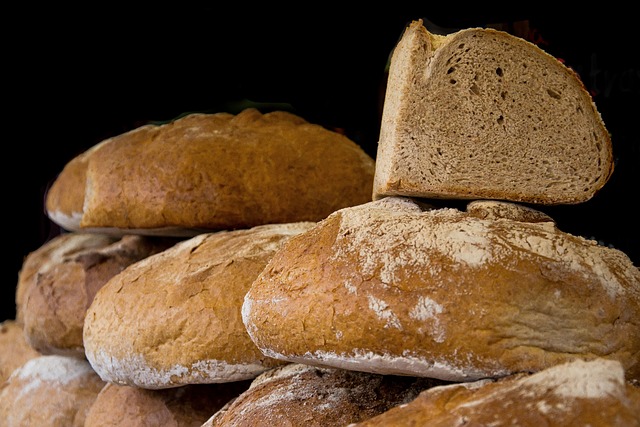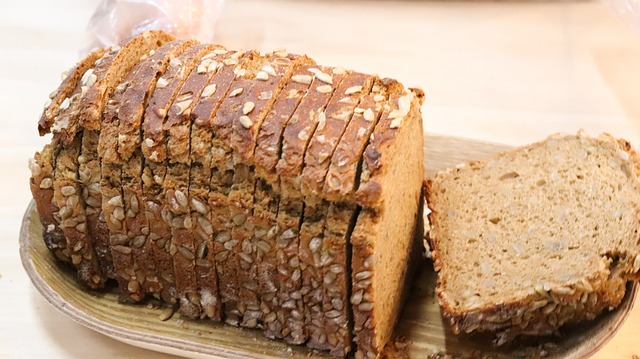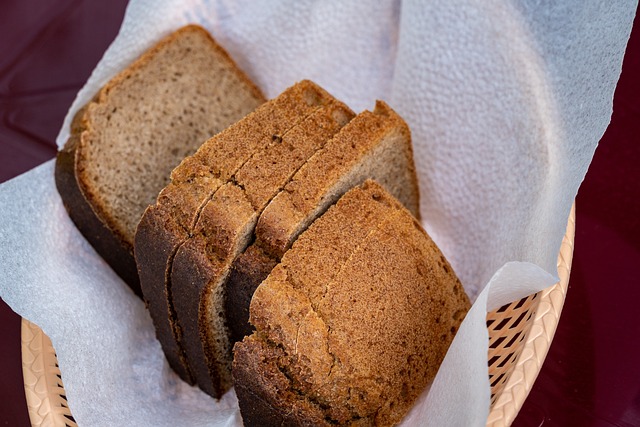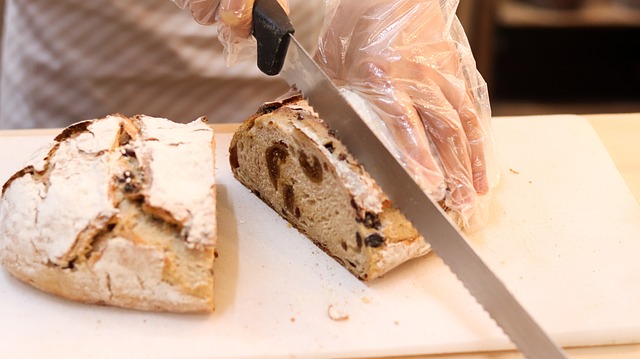There are a few reasons why your bread may smell like alcohol. fermentation, over-proofing, and gluten development are all possible causes. Here’s a more detailed breakdown of each.
Fermentation
One of the most common causes of an alcoholic smell in bread is fermentation. As the yeast ferments the sugars in the dough, it produces ethanol and carbon dioxide. The longer the fermentation process takes, the more time the yeast has to produce ethanol.

That’s why dough that has been fermented for a long time often smells more alcoholic than dough that was fermented for a shorter period of time.
Over proofing
Another possible cause of an alcoholic smell in bread is over proofing. Overproofing is when the dough has been left to rise for too long and the yeast has had too much time to produce ethanol. This can often happen if the dough was left to rise in a warm place or if too much yeast was used in the recipe.
Gluten Development
The final possible cause of an alcoholic smell in bread is gluten development. As the gluten in the flour develops during kneading, it can produce a faint alcoholic smell. This is completely normal and is not cause for concern.
There are a few possible reasons why your bread may smell like alcohol. fermentation, over-proofing, and gluten development are all possible causes. If you’re concerned about the smell, try shortening the fermentation time, proofing time, or kneading time to see if that helps. If not, then don’t worry about it! The smell is most likely due to gluten development and is completely normal.
What Does Spoiled Bread Smell Like?

We’ve all been there. You’re super excited to make a nice sandwich for lunch, only to discover that the bread is moldy. Blegh! Not only does it look gross, but it also smells really bad.
Have you ever wondered why? We did a little digging and found out that there are actually a few reasons why spoiled bread can smell so incredibly bad.
Molds and Yeasts Release Volatile Organic Compounds
One of the main reasons why spoiled bread smells so bad is because molds and yeasts release volatile organic compounds (VOCs) as they break down carbohydrates. VOCs are gases that easily become vapors or liquids, and they’re known for having potent odors.
In fact, some VOCs can actually be toxic if they’re inhaled in large quantities. The VOCs released by spoiled bread are generally not considered to be toxic, but they can still cause nausea and headaches in some people.
Bacteria Produce Sulfur Compounds
Another reason why spoiled bread smells so bad is that bacteria produce sulfur compounds as they break down proteins. Sulfur compounds are notorious for their odor—think of the smell of rotten eggs—and they can cause irritation to the eyes, nose, and throat.
So, if you ever notice an extra potent smell coming from your moldy bread, chances are it’s due to high levels of sulfur compounds.
The next time you go to reach for a slice of bread only to be hit with a wave of stench, remember that it’s not just your imagination—spoiled bread really does smell disgustingly bad!
And now you know why: molds and yeasts release volatile organic compounds, while bacteria produce sulfur compounds, both of which can cause irritation and even nausea in some people. So, when in doubt, throw it out—it’s just not worth the risk!
The Smell of Spoilage: Why Does Bread Go Bad?
Blog Introduction: It’s happened to all of us. We buy a loaf of bread, use half of it, and then the other half sits in the pantry until it’s hard as a rock. Or, even worse, we buy a delicious-looking loaf of bread only to find that, when we open it up, it smells like sulfur. What gives?
Bread is a food that is notorious for going bad quickly. Have you ever wondered why that is? Keep reading to find out the science behind why bread spoils and what you can do to prevent it!
The Science of Spoilage
Bread is made up mostly of carbohydrates and water. Carbohydrates are made up of long chains of sugar molecules. When the bread is first baked, the water content in the dough begins to vaporize, causing the gluten proteins to unwind and creating the spongy texture that we know and love.
However, over time, the water molecules will begin to exit the bread through a process called retrogradation. This causes the gluten proteins to rewind and recrystallize, making the bread harder and less palatable. In addition, when bread goes bad, mold can begin to form. Mold spores are everywhere in the air around us and, when they land on food, they begin to grow.
Mold releases enzymes that break down carbohydrates and proteins into smaller molecules, which can cause bread to spoil and smell bad.
Preventing Spoilage
Now that we know what causes bread to go bad, let’s talk about how we can prevent it! One way to extend the shelf life of your bread is to store it in the fridge or freezer. This will slow down the process of retrogradation by keeping the water molecules from evaporating as quickly.
However, this also means that your bread will become stale more quickly once you take it out of storage since moisture is what makes bread soft.
Another way to keep your loaf fresh is to slice it before you freeze it. That way, you can pull out only as many slices as you need and put the rest back in storage without having to thaw out an entire loaf. Of course, another option is simply to buy smaller loaves so that you are more likely to eat them all before they go bad!
Bread is a staple in many people’s diets but its short shelf life can be frustrating. We hope that this article has shed some light on why bread goes bad and how you can prevent it! Now go forth and enjoy your toast without worry!
Read more:
Is There A Microwave Toaster Oven Combo? Pros and Cons
Should Bread Dough Smell Like Beer?

Blog Introduction: Have you ever wondered why bread dough smells like beer? It’s a common question that home cooks have when they’re making bread, and it’s one that has a scientific answer. Let’s take a closer look at why bread dough smells like beer and what that means for your baking.
Bread dough smells like beer because of the fermentation process that is necessary to make yeast-leavened bread. During fermentation, the yeast consumes the sugars in the dough and produces carbon dioxide gas and alcohol.
The alcohol evaporates during baking, which is why you can’t taste it in the final product. However, the smell of alcohol remains, and that’s what gives bread dough its characteristic yeasty smell.
While the fermentation process is what causes bread dough to smell like beer, there are other factors that can influence the smell of your dough.
For instance, if your flour is older, it may contain more wild yeast cells, which can cause your dough to smell even more like beer. Similarly, if you use a lot of salt in your dough or don’t let it rise long enough, those factors can also contribute to a stronger beer smell.
So, there you have it—the next time you’re wondering why your bread dough smells like beer, you can blame it on the fermentation process! But don’t worry, as long as you follow your recipe and let your dough rise properly, the final product will be delicious and free of any unwanted alcohol flavor. Bon appétit!









